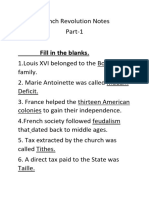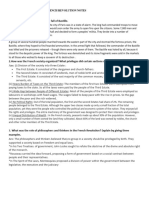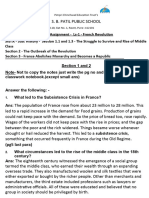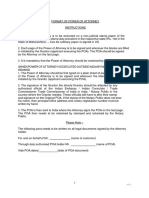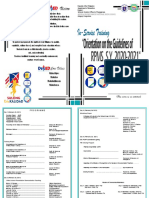0% found this document useful (0 votes)
18 views4 pagesQa CH 1 History
The document outlines key events and causes of the French Revolution, including the storming of the Bastille on July 14, 1789, and the factors leading to a subsistence crisis in France. It discusses the formation of the National Assembly by the Third Estate, the establishment of a constitutional monarchy, and the role of the Jacobins. Additionally, it highlights changes in society and everyday life post-revolution, including the abolition of slavery and the promotion of equality and freedom.
Uploaded by
hitashishekharCopyright
© © All Rights Reserved
We take content rights seriously. If you suspect this is your content, claim it here.
Available Formats
Download as DOCX, PDF, TXT or read online on Scribd
0% found this document useful (0 votes)
18 views4 pagesQa CH 1 History
The document outlines key events and causes of the French Revolution, including the storming of the Bastille on July 14, 1789, and the factors leading to a subsistence crisis in France. It discusses the formation of the National Assembly by the Third Estate, the establishment of a constitutional monarchy, and the role of the Jacobins. Additionally, it highlights changes in society and everyday life post-revolution, including the abolition of slavery and the promotion of equality and freedom.
Uploaded by
hitashishekharCopyright
© © All Rights Reserved
We take content rights seriously. If you suspect this is your content, claim it here.
Available Formats
Download as DOCX, PDF, TXT or read online on Scribd
/ 4












